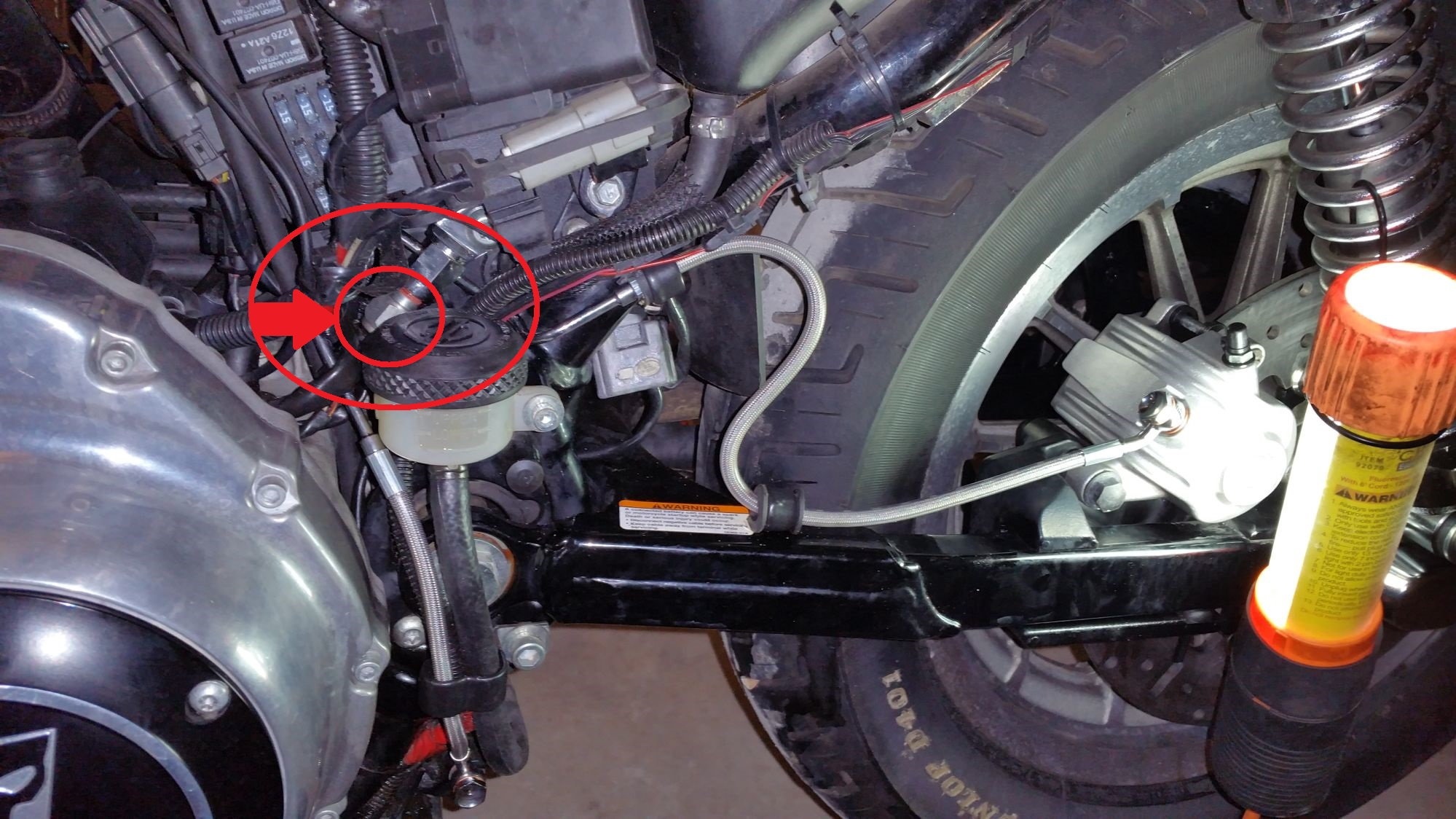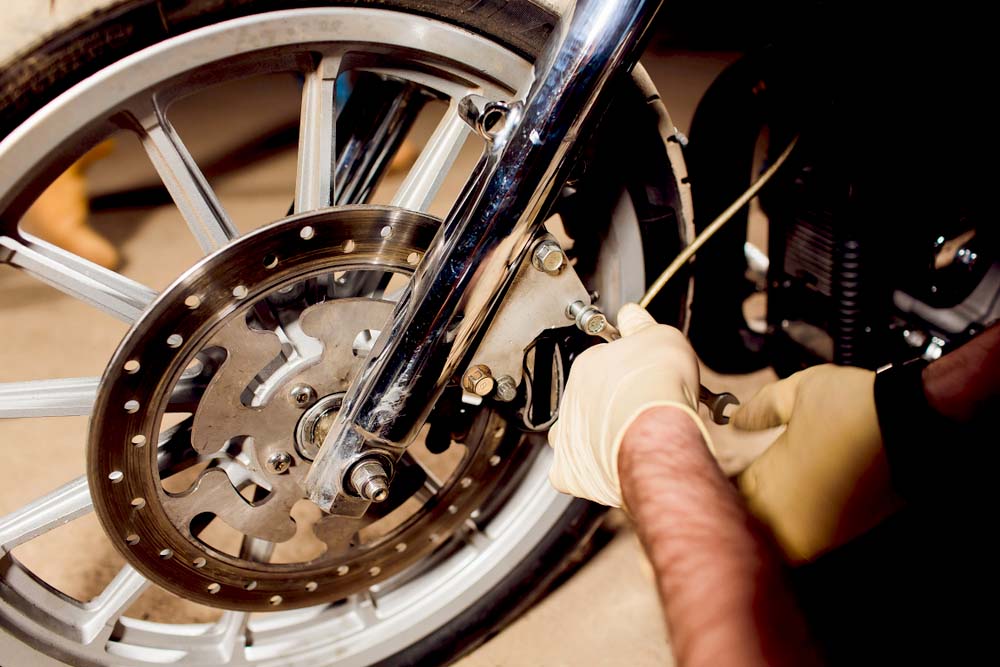Need help with Harley Davidson rear brake troubleshooting? Check for worn brake pads and low brake fluid levels.
When it comes to maintaining your Harley Davidson motorcycle, ensuring the proper functioning of the rear brake system is crucial for your safety on the road. If you are experiencing issues with your rear brake, such as sponginess, reduced braking power, or unusual noises, it may indicate underlying problems that need to be addressed promptly.
In this guide, we will explore common rear brake issues that Harley Davidson riders often encounter and provide troubleshooting tips to help you diagnose and fix the problem effectively. By identifying the root cause of the rear brake issues and taking appropriate measures, you can ensure a smooth and safe riding experience on your Harley Davidson.
Common Rear Brake Issues
When it comes to Harley Davidson rear brake issues, it’s important to be aware of the common problems that could arise. Addressing these issues promptly can help maintain the safety and performance of your motorcycle. Here, we’ll discuss two common rear brake issues: spongy pedals and ‘brake dragging’ – along with their possible causes and troubleshooting tips.
Spongy Brake Pedal
A spongy brake pedal can significantly impact the braking efficiency of your Harley Davidson. If you experience a mushy or soft feeling when applying the rear brake, it’s crucial to address this issue promptly. The following factors could contribute to a spongy brake pedal:
- Air in the brake line
- Worn brake pads or shoes
- Brake fluid contamination or moisture ingress
To resolve a spongy brake pedal, consider bleeding the brake system to remove air and ensure a firm pedal feel. Additionally, inspect the brake pads or shoes for wear and replace them if necessary. Regularly servicing the brake fluid and checking for any contamination or moisture can help maintain the pedal’s responsiveness.
Brake Dragging
Brake dragging can lead to accelerated wear on brake components and affect the motorcycle’s performance. When the rear brake exhibits a dragging sensation, it’s essential to identify and rectify the root cause. The following issues may lead to brake dragging:
- Sticky or seized brake caliper pistons
- Misadjusted brake pedal or linkage
- Worn or damaged brake rotor
To alleviate brake dragging, inspect the brake caliper for any sticking or seizing of pistons and lubricate them as needed. Check the brake pedal and linkage for proper adjustment and ensure smooth movement. Additionally, assess the condition of the brake rotor and replace it if excessive wear or damage is detected.
Possible Causes
Possible Causes of Harley Davidson Rear Brake Troubleshooting
Air In The Brake System
Air may be causing braking issues in your Harley Davidson. Bleeding the brake system can help remove trapped air bubbles.
Worn Brake Pads
Check for excessive wear on the brake pads, which can reduce braking efficiency. Replace if needed.
Malfunctioning Brake Caliper
A faulty brake caliper can lead to ineffective braking on your Harley Davidson. Inspect and repair as necessary.
Troubleshooting Steps
If you’re experiencing issues with your Harley Davidson’s rear brake, follow these troubleshooting steps to address the problem and ensure optimal performance. By carefully analyzing the brake system and addressing any potential causes, you can ensure a safe and smooth riding experience.
Check Brake Fluid Levels
Ensure brake fluid is at the optimal level for smooth braking.
Bleed The Brake System
Remove air bubbles from the system for efficient braking.
Inspect Brake Pads
Check the condition of the brake pads for optimal performance.
Examine the Caliper
Ensure brake caliper is functioning properly for safe braking.

Credit: www.hdforums.com
Maintenance Tips
Regular maintenance of the rear brake system on your Harley Davidson is crucial for optimal performance and safety. By keeping a close eye on key components and addressing any issues promptly, you can ensure that your rear brake operates smoothly and reliably. Here are some essential maintenance tips to help you troubleshoot and maintain your Harley Davidson rear brake system.
Regularly Check Brake Fluid
Regularly checking the brake fluid level is vital for the proper functioning of your rear brake. Inspect the reservoir to ensure the brake fluid is at the recommended level. If necessary, top up the fluid to prevent air bubbles from entering the system, which can lead to ineffective braking.
Replace Brake Pads As Needed
Replace the brake pads when they are worn, as worn pads can impact braking efficiency and lead to damage. Regularly inspect the thickness of the pads and replace them as needed to maintain optimal braking performance.
Ensure Proper Lubrication Of Brake Caliper
Proper lubrication of the brake caliper is crucial for ensuring smooth operation. Regularly inspect and lubricate the moving parts of the caliper to prevent sticking or binding that can affect braking efficiency.
When To Seek Professional Help
If you are experiencing persistent brake issues with your Harley Davidson motorcycle, it may be time to seek professional help. Ignoring brake problems can compromise your safety on the road and lead to more severe damage to your bike. This section will highlight three key indicators that should prompt you to consult a professional mechanic for proper troubleshooting and repair.
Persistent Brake Issues
If your rear brake is not functioning as it should, it’s essential to address the issue promptly. A professional mechanic can accurately diagnose the root cause of the problem and provide the necessary repairs. Some common persistent brake issues include:
- Soft or spongy brake pedal
- The brake pedal sinking to the floor
- the brake warning light is constantly illuminated
- Uneven brake pad wear
Once you notice any of these signs, it’s best to seek professional help to ensure your brakes operate at optimal performance and comply with safety standards.
Unusual Noises Or Vibrations
If you hear unusual noises or experience vibrations when applying the rear brake, it’s crucial to have it inspected by a professional mechanic. Unusual noises can indicate various brake problems, such as:
- Squeaking or squealing sounds
- Grinding or scraping noises
- Pulsating brake pedal
- Vibrations felt through the handlebars or foot pegs
A professional mechanic has the expertise to identify the source of these noises or vibrations and provide the necessary repairs. Ignoring these warning signs can lead to more significant issues and compromise your safety on the road.
Lack Of Braking Power
If you notice a lack of braking power when using the rear brake, it is a clear indication that something is wrong. This may manifest as:
- Increased stopping distances
- Brakes not engaging fully
- The brake lever or pedal feeling loose or unresponsive
Seeking professional help for troubleshooting is essential to identifying the underlying cause of the problem. It could be an issue with the brake pads, brake fluid, or other components that require adjustment or replacement.
Remember, properly functioning brakes are crucial for your safety on the road. If you experience persistent brake issues, unusual noises or vibrations, or a lack of braking power with your Harley Davidson’s rear brake, don’t hesitate to consult a professional mechanic. They have the knowledge and expertise to diagnose the problem accurately and provide the necessary repairs, ensuring your bike remains in optimal condition.

Credit: www.partzilla.com

Credit: m.youtube.com
Frequently Asked Questions
How Do I Know If My Harley Davidson Rear Brake Is Failing?
Look for signs like reduced braking power, squealing noises, or excessive vibration in the brake pedal.
What Should I Do If My Harley Davidson Rear Brake Is Not Working?
Check the brake fluid level, inspect the brake pads, and ensure the brake caliper is functioning properly.
Why Is My Harley Davidson Rear Brake Pedal Feeling Spongy?
The spongy feeling could be due to air in the brake lines, worn-out brake pads, or problems with the brake caliper.
How Often Should I Replace the Brake Pads on My Harley Davidson?
It is recommended to replace the brake pads every 10,000–20,000 miles or whenever they are worn down to the minimum thickness.
Why Is My Harley Davidson Rear Brake Making A Grinding Noise?
Grinding noises could indicate worn-out brake pads, a loose brake caliper, or damage to the brake rotor.
Conclusion
Thank you for reading our guide on Harley Davidson rear brake troubleshooting. By following these steps, you can diagnose and fix common brake issues. Remember to regularly maintain your brakes to ensure safe and smooth riding. Stay on top of any potential problems to keep your Harley in top condition.





